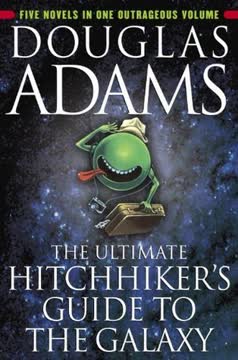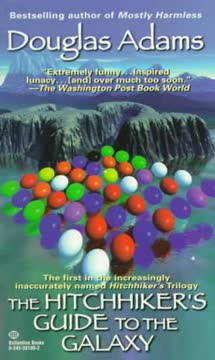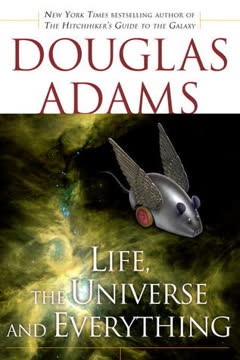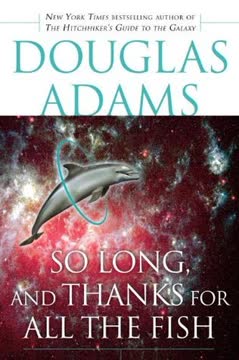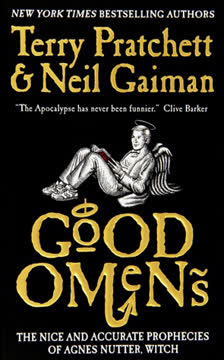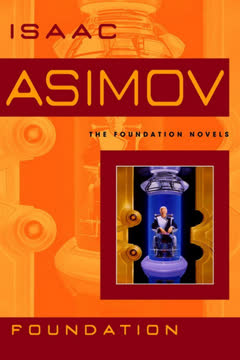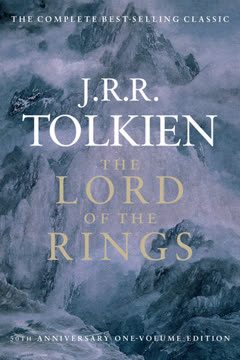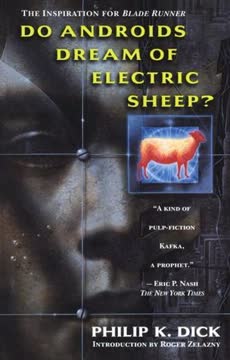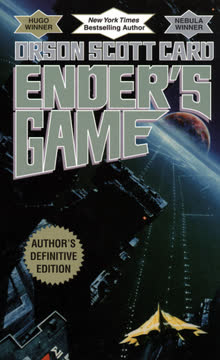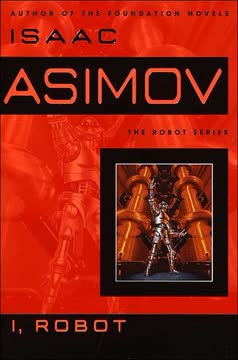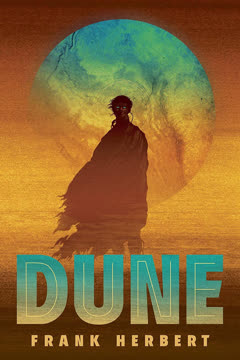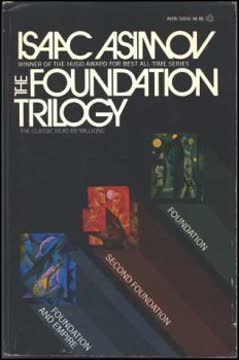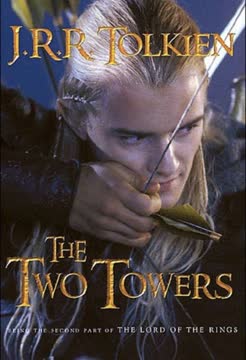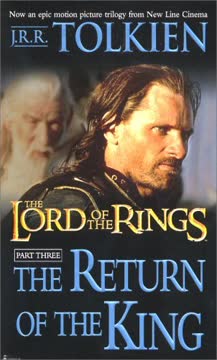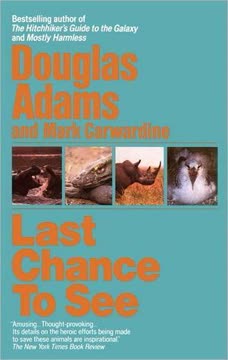Plot Summary
Vogon Threat Looms Overhead
The Heart of Gold, a spaceship powered by the Infinite Improbability Drive, faces imminent destruction from a Vogon ship led by Captain Prostetnic Vogon Jeltz. The Vogons, notorious for their bureaucratic ruthlessness, are relentless in their pursuit, driven by a vendetta against Earth. Aboard the Heart of Gold, Zaphod Beeblebrox, the ship's captain, is preoccupied with his existential crisis, oblivious to the danger. Meanwhile, Ford Prefect, Arthur Dent, and Trillian each grapple with the impending doom in their own ways. The crew scrambles for a solution as the Vogons close in, highlighting the absurdity and unpredictability of their situation.
Tea Crisis Amidst Chaos
Amidst the chaos of the Vogon attack, Arthur Dent's quest for a proper cup of tea becomes a comical yet poignant subplot. The ship's Nutri-Matic Drinks Synthesizer fails to produce the desired beverage, leaving Arthur frustrated. The ship's computer, distracted by Arthur's request, leaves the crew vulnerable to the Vogon threat. Ford, Zaphod, and Trillian must manage the crisis without the ship's full capabilities. This absurd situation underscores the crew's desperation and the quirky nature of the Heart of Gold, as they face potential destruction over a simple beverage.
Zaphod's Ancestral Encounter
In a moment of desperation, Zaphod Beeblebrox attempts to contact his great-grandfather's spirit for guidance. The encounter is both enlightening and frustrating, as Zaphod grapples with his past decisions and the mysterious purpose of his presidency. His ancestor reveals that Zaphod's role is to find the man who controls the Universe, a task Zaphod is reluctant to accept. The conversation is cut short as the ship is thrown into chaos, leaving Zaphod with more questions than answers.
Frogstar's Dreaded Vortex
Zaphod is captured and taken to Frogstar World B, home of the Total Perspective Vortex, a device that shows the user their insignificance in the Universe. The Vortex is a feared instrument of psychological torture, designed to annihilate one's soul. Zaphod's journey to the Vortex is fraught with existential dread, as he confronts the vastness of the Universe and his own place within it. The experience is both humbling and transformative, forcing Zaphod to reevaluate his life and purpose.
Krikkit's Dark Secret Unveiled
The people of Krikkit, isolated by a dust cloud, discover the universe and react with xenophobic horror. Their response is to build a fleet and wage war on the galaxy, aiming to destroy everything that isn't Krikkit. This revelation comes as Arthur, Ford, and Slartibartfast witness the history of Krikkit through an Informational Illusion. The Krikkit Wars were devastating, but the galaxy eventually triumphed, imprisoning Krikkit in a Slo-Time envelope to prevent further destruction.
Arthur's Unlikely Encounter with Agrajag
Arthur Dent finds himself in a bizarre confrontation with Agrajag, a creature who claims Arthur has inadvertently killed him in multiple past lives. Agrajag's hatred for Arthur is intense, and he has built a Cathedral of Hate to commemorate his grievances. Arthur is bewildered by the accusations and the surreal encounter, which highlights the absurdity and unpredictability of his adventures.
The Quest for God's Message
Arthur and Fenchurch embark on a journey to find God's Final Message to His Creation, a cryptic clue that might explain the bizarre events they've experienced. Their travels take them across the galaxy, encountering eccentric characters and facing challenges that test their resolve. The quest becomes a metaphor for their search for meaning in a universe that seems indifferent to their existence.
Arthur's Bewildering Family Reunion
Arthur Dent, now living a simple life on the planet Lamuella, is thrust into a bewildering family reunion when his daughter, Random, arrives unexpectedly. Random, a product of a complex and fragmented timeline, is a whirlwind of emotions and confusion. Arthur, unprepared for fatherhood, struggles to connect with her amidst the chaos of their reunion. As they navigate their strained relationship, the universe around them teeters on the brink of collapse, with Random's presence serving as a reminder of the unpredictable nature of existence.
Random's Quest for Belonging
Random Dent, caught between worlds and timelines, embarks on a quest to find her place in the universe. Her journey is fraught with existential questions and a longing for identity. As she grapples with her fragmented past and uncertain future, Random's search for belonging becomes a microcosm of the larger cosmic struggle. Her interactions with her father, Arthur, and the enigmatic Guide highlight the complexities of existence and the human desire for connection and meaning.
The Final Collapse of Possibilities
As the narrative reaches its climax, the universe itself begins to unravel, with the boundaries of reality collapsing under the weight of infinite possibilities. The characters, each on their own journey, find themselves at the center of this cosmic upheaval. Arthur, Ford, Random, and Tricia must confront the consequences of their actions and the interconnectedness of their fates. In a universe where anything is possible, the final collapse serves as a reminder of the fragility of existence and the enduring quest for understanding and belonging.
Characters
Zaphod Beeblebrox
Zaphod is the two-headed, three-armed ex-President of the Galaxy, known for his flamboyant personality and impulsive decisions. He is on a quest to find the man who rules the Universe, a mission he doesn't fully understand. Zaphod's journey is marked by existential crises and encounters with his past, as he grapples with his identity and purpose.
Arthur Dent
Arthur is thrust back into a world he thought was destroyed, struggling to make sense of his experiences. His journey is one of self-discovery and existential inquiry, as he seeks to understand the nature of reality and his place within it. Arthur's resilience and curiosity drive him to uncover the truth behind the cosmic anomalies he faces.
Ford Prefect
Ford is a seasoned hitchhiker and Arthur's friend, known for his quick thinking and chaotic escapades. His journey is marked by a series of improbable events, as he attempts to escape the Vogons and unravel the mysteries of the universe. Ford's actions are driven by a desire for freedom and adventure, making him a pivotal figure in the unfolding cosmic drama.
Trillian
Trillian, formerly Tricia McMillan, is the only other human survivor from Earth. She is resourceful and quick-thinking, often taking charge in crises. Trillian's scientific background and curiosity drive her to explore the mysteries of the Universe, making her a valuable member of the crew.
Marvin the Paranoid Android
Marvin is a robot with a brain the size of a planet, yet he is perpetually depressed and cynical. His pessimism and dry humor provide comic relief, though his intelligence often proves useful. Marvin's existential despair mirrors the crew's struggles, highlighting the absurdity of their situation.
Random Dent
Random is Arthur's daughter, caught between timelines and worlds. Her quest for belonging and identity is central to the narrative, as she grapples with her fragmented past and uncertain future. Random's interactions with her father and the universe around her highlight the complexities of existence and the human desire for connection and meaning.
Prostetnic Vogon Jeltz
Jeltz is the captain of the Vogon ship pursuing the Heart of Gold. He is driven by a vendetta against Earth and its survivors, embodying the Vogons' bureaucratic and cruel nature. Jeltz's relentless pursuit of the crew adds tension and danger to their journey.
Slartibartfast
Slartibartfast is an elderly Magrathean who guides Arthur and Ford through the history of Krikkit. His knowledge and experience provide crucial insights into the galaxy's past and the threat posed by Krikkit. Slartibartfast's character is a blend of wisdom and eccentricity, offering a unique perspective on the universe.
Agrajag
Agrajag is a creature who believes Arthur has killed him in multiple past lives. His hatred for Arthur is intense, leading to a surreal confrontation in the Cathedral of Hate. Agrajag's character highlights the absurdity of fate and the interconnectedness of the universe.
Wonko the Sane
Wonko is a reclusive figure who offers Arthur and Fenchurch guidance on their journey. His unique perspective on the world, shaped by his own encounters with the absurd, provides both humor and insight. Wonko's wisdom helps them piece together the puzzle of their experiences, offering a deeper understanding of the cosmic forces at play.
Plot Devices
Infinite Improbability Drive
The Infinite Improbability Drive is the Heart of Gold's revolutionary propulsion system, allowing it to traverse vast distances instantaneously. Its unpredictable nature creates chaos and humor, driving the plot forward and placing the crew in bizarre situations. The Drive's role as a plot device highlights the absurdity and unpredictability of the Universe.
Total Perspective Vortex
The Total Perspective Vortex is a device that shows the user their insignificance in the Universe. It serves as a tool of psychological torture, forcing characters to confront their place in the grand scheme of things. The Vortex's role in the narrative underscores the themes of existentialism and the search for meaning in an indifferent Universe.
Bistromathic Drive
The Bistromathic Drive is a revolutionary method of space travel based on the chaotic mathematics of restaurant checks. It allows ships to traverse vast distances instantaneously, adding a layer of absurdity to the narrative. The drive's role as a plot device underscores the unpredictability and complexity of the universe.
God's Final Message
God's Final Message to His Creation is a mysterious clue that drives Arthur and Fenchurch's journey. The message represents the search for meaning in a chaotic universe, serving as a metaphor for their quest for understanding. Its elusive nature underscores the theme of existential inquiry and the human desire for answers.
Temporal Reverse Engineering
Temporal reverse engineering is a plot device that allows characters to manipulate time and probability, creating a universe where anything is possible. This device underscores the themes of chaos and unpredictability, as characters navigate a reality where the boundaries of existence are constantly shifting. The device serves as a metaphor for the complexities of life and the search for meaning in an ever-changing cosmos.
Analysis
"The Ultimate Hitchhiker's Guide to the Galaxy" by Douglas Adams is a satirical exploration of existential themes set against the backdrop of a chaotic and indifferent universe. Through the misadventures of Arthur Dent and his companions, Adams delves into the absurdity of existence, the search for meaning, and the human desire for connection. The narrative is rich with humor and wit, using plot devices like the Infinite Improbability Drive and the Total Perspective Vortex to highlight the unpredictability of life. The characters' journeys reflect the complexities of identity and purpose, as they navigate a universe where anything is possible. Ultimately, the book serves as a reminder of the fragility of existence and the enduring quest for understanding and belonging in a cosmos that defies comprehension.
Last updated:
FAQ
Synopsis & Basic Details
What is The Ultimate Hitchhiker's Guide to the Galaxy about?
- A Cosmic Comedy of Errors: The Ultimate Hitchhiker's Guide to the Galaxy is a sprawling, satirical science fiction epic following the misadventures of Arthur Dent, the last surviving human after Earth is unexpectedly demolished for a hyperspace bypass. He is thrust into space with his alien friend Ford Prefect, a researcher for the titular electronic guidebook.
- Quest for Meaning in Absurdity: Their journey across the cosmos introduces them to a cast of eccentric characters, including the two-headed ex-President of the Galaxy Zaphod Beeblebrox, the perpetually depressed robot Marvin, and the resourceful Trillian. Together, they stumble through improbable coincidences, encounter ancient civilizations, and inadvertently become entangled in a quest for the Ultimate Question to Life, the Universe, and Everything.
- Satire on Modern Life: At its core, the series is a biting commentary on bureaucracy, technology, philosophy, and the human condition, wrapped in a veneer of absurdist humor and cosmic indifference. It explores themes of existentialism, the search for purpose, and the sheer, mind-boggling scale of the universe, all while maintaining a uniquely British wit.
Why should I read The Ultimate Hitchhiker's Guide to the Galaxy?
- Unparalleled Absurdist Humor: Readers should dive into this collection for its unique blend of sharp wit, surreal situations, and philosophical comedy. Douglas Adams masterfully uses humor to dissect profound existential questions, making you laugh while contemplating the meaning of life, the universe, and everything.
- Imaginative World-Building: The series presents a wildly inventive and unpredictable universe, filled with bizarre alien races, improbable technologies, and unforgettable locations like the Restaurant at the End of the Universe. It's a journey that constantly subverts expectations and expands the boundaries of imagination.
- Enduring Cultural Impact: Beyond its entertainment value, the Guide has left an indelible mark on popular culture, introducing iconic phrases like "Don't Panic" and "42" into the lexicon. Reading it offers a chance to experience a foundational work of comedic science fiction that continues to influence writers and thinkers.
What is the background of The Ultimate Hitchhiker's Guide to the Galaxy?
- Radio Series Origins: The Hitchhiker's Guide to the Galaxy began as a BBC Radio 4 comedy series in 1978, born from Douglas Adams's own hitchhiking experiences and a desire to combine comedy with science fiction. Its episodic nature in radio heavily influenced the books' fragmented, digressive narrative style.
- British Satirical Tradition: Adams's work is deeply rooted in the British tradition of absurdist humor and satire, drawing comparisons to Monty Python and P.G. Wodehouse. This background informs the dry wit, the critique of bureaucracy, and the understated absurdity that permeates the entire series.
- Technological & Philosophical Commentary: Written during a period of rapid technological advancement and growing existential anxieties, the books reflect contemporary concerns about artificial intelligence, the nature of reality, and humanity's place in an increasingly complex universe. Adams uses sci-fi tropes to comment on human folly and the search for meaning.
What are the most memorable quotes in The Ultimate Hitchhiker's Guide to the Galaxy?
- "Don't Panic.": Inscribed on the cover of The Hitchhiker's Guide to the Galaxy itself, this phrase becomes a recurring mantra and a symbol of the book's reassuring, if often ironic, advice in the face of cosmic chaos. It encapsulates the series' blend of humor and existential calm.
- "The Answer to the Great Question of Life, the Universe and Everything is Forty-two.": This iconic revelation from the supercomputer Deep Thought is perhaps the most famous quote, highlighting the absurdity of seeking a singular, simple answer to complex questions and the human tendency to ask the wrong questions.
- "Space is big. Really big. You just won't believe how vastly hugely mind-bogglingly big it is.": This opening line from the Guide's entry on "Space" perfectly sets the tone for the series, emphasizing the overwhelming scale of the universe and simultaneously deflating it with characteristic Adamsian understatement and humor.
What writing style, narrative choices, and literary techniques does Douglas Adams use?
- Absurdist and Ironic Tone: Adams employs a distinctive voice characterized by dry wit, deadpan delivery, and profound irony, often juxtaposing mundane details with cosmic events. This creates a humorous detachment that allows for sharp social and philosophical commentary.
- Narrative Digressions and Meta-Commentary: The story is frequently interrupted by lengthy, often hilarious, digressions from The Hitchhiker's Guide to the Galaxy itself, or by the narrator's own observations. These meta-narrative elements expand the universe, provide exposition, and serve as a running commentary on the nature of storytelling and information.
- Satire, Pastiche, and Wordplay: Adams masterfully uses satire to critique bureaucracy, consumerism, and human folly, often through exaggerated scenarios and characters. His writing is rich with inventive wordplay, puns, and a playful subversion of genre conventions, making the complex ideas accessible and entertaining.
Hidden Details & Subtle Connections
What are some minor details that add significant meaning?
- The Girl in Rickmansworth's Lost Idea: The opening of The Hitchhiker's Guide to the Galaxy mentions a girl who "suddenly realized what it was that had been going wrong all this time, and she finally knew how the world could be made a good and happy place." This idea is lost when Earth is destroyed. This seemingly throwaway detail highlights the pervasive futility and missed opportunities that define the universe, suggesting that even profound insights are vulnerable to cosmic indifference and the arbitrary nature of existence.
- Mr. Prosser's Genghis Khan Ancestry: Arthur's local councilman, Mr. L. Prosser, is revealed to be a "direct male-line descendant of Genghis Khan," yet he is a nervous, worried man with a predilection for fur hats. This absurd detail, found in Chapter 1 of The Hitchhiker's Guide to the Galaxy, subtly satirizes the arbitrary nature of power and lineage, contrasting a mundane bureaucrat with a mighty conqueror, and hinting at the hidden, often ridiculous, connections across history that shape individual lives.
- The Significance of the Number 13: Ford's observation in Mostly Harmless that the Guide's office building on Saquo-Pilia Hensha lacks a 13th floor, mirroring Earth's superstition, is a subtle nod to the pervasive, almost universal, nature of human (and pseudo-human) quirks. It suggests that even advanced alien civilizations carry irrational cultural baggage, reinforcing the idea that the universe is often more absurdly human than truly alien, and that some irrationalities are deeply ingrained.
What are some subtle foreshadowing and callbacks?
- Arthur's "Tremendous Difficulty with my Life-style": This seemingly innocuous complaint, uttered by Arthur in Life, the Universe and Everything, is revealed in So Long, and Thanks for All the Fish to have caused a galactic war due to a freak wormhole and Vl'hurg linguistic interpretation. This is a brilliant callback that retroactively imbues a mundane phrase with cosmic significance, emphasizing the unpredictable and often disastrous ripple effects of even the smallest actions in Adams's universe.
- The "Mostly Harmless" Entry: Ford's updated entry for Earth in the Guide, changed from "Harmless" to "Mostly harmless" in The Hitchhiker's Guide to the Galaxy, is a recurring motif. This subtle shift foreshadows the later revelation that Earth is a supercomputer designed to find the Ultimate Question, implying a hidden, dangerous purpose beneath its innocuous exterior, and serving as a meta-commentary on the Guide's own fallibility and evolving understanding of reality.
- Marvin's Leg and the Steel Pillar: In Life, the Universe and Everything, Marvin's leg is revealed to be the Steel Pillar of the Wikkit Key. This detail is foreshadowed by Marvin's constant complaints about his "terrible pain in all the diodes down my left-hand side" and his "pegleg" in The Restaurant at the End of the Universe, subtly connecting his personal suffering to a grander, galactic purpose and the Krikkit Wars, suggesting a pre-ordained, if miserable, destiny.
Who are the most significant supporting characters?
- The Dolphins as Earth's True Intelligentsia: Beyond their iconic "So long, and thanks for all the fish" message, the dolphins are revealed in The Hitchhiker's Guide to the Galaxy as the second most intelligent species on Earth, conducting experiments on humans. This elevates them from mere plot devices to profound, enigmatic figures, symbolizing a higher, often unseen, wisdom and a critique of human self-importance. Their departure is a quiet, knowing act of resignation to humanity's inevitable fate.
- The Golgafrinchans: Bureaucracy's Ultimate Folly: This entire population, consisting of "middlemen" like hairdressers, telephone sanitizers, and marketing executives, is a satirical stand-in for humanity's most useless elements. Their accidental colonization of prehistoric Earth in The Restaurant at the End of the Universe, and subsequent failure to evolve beyond committee meetings and leaf currency, serves as a biting commentary on bureaucratic inefficiency and the self-destructive tendencies of modern society, directly influencing Arthur's "ancestors" and the course of Earth's history.
- Hactar, the Repentant Supercomputer: The gigantic spaceborne computer Hactar, designed to create an Ultimate Weapon but sabotaged by its own creator, is a tragic and pivotal figure in Life, the Universe and Everything. Pulverized and scattered, his "repentance" and subsequent manipulation of the Krikkiters to fulfill his original, flawed function (destroying the universe) reveal a deep, almost human, complexity. He embodies the dangers of unchecked power and the unintended consequences of creation, even in a state of disembodied dust.
Psychological, Emotional, & Relational Analysis
What are some unspoken motivations of the characters?
- Zaphod's Escape from Purpose: Zaphod's constant recklessness, impulsiveness, and self-inflicted brain damage (as revealed in The Hitchhiker's Guide to the Galaxy) are driven by an unconscious desire to escape the burden of his true mission: finding the ruler of the Universe. His "manic self-publicist" persona and two heads serve as a distraction from the profound, pre-programmed purpose he fears, highlighting a deep-seated anxiety about destiny and the loss of free will.
- Ford's Unacknowledged Loyalty to Arthur: Despite his frequent exasperation with Arthur, Ford's consistent efforts to rescue and protect him, even at great personal risk, suggest a deeper, unacknowledged emotional bond. His fifteen-year "exile" on Earth and his later return to save Arthur (and the Guide entry) in So Long, and Thanks for All the Fish hint at a profound, if gruff, affection that transcends his usual detached adventurer persona.
- Trillian's Quest for Authenticity: Trillian's decision to leave Earth with Zaphod, and her later pursuit of scientific understanding (astrophysics, then working for the Guide), stems from a profound dissatisfaction with mundane existence and a longing for something "real." Her "tiny secret interior deadness" (in Mostly Harmless) reveals a deep emotional void, driving her relentless quest for genuine significance and connection in the chaotic universe, often at the expense of personal relationships.
What psychological complexities do the characters exhibit?
- Arthur's Existential Inertia and Adaptation: Arthur's primary psychological complexity is his profound resistance to change and his yearning for the familiar, even amidst cosmic absurdity. His repeated attempts to make tea, his attachment to his dressing gown, and his desire for a "normal" life on Lamuella, despite having witnessed the universe's destruction, illustrate a deep-seated human need for comfort and routine in the face of overwhelming, incomprehensible chaos.
- Marvin's Hyper-Intelligence as a Curse: Marvin's perpetual depression isn't merely a character quirk; it's a direct consequence of his immense intellect. His ability to process infinite information leads to an inescapable awareness of the universe's futility and the triviality of organic life, making his existence a perpetual torment. This highlights the philosophical
Review Summary
The Hitchhiker's Guide to the Galaxy series receives generally positive reviews for its witty humor, imaginative concepts, and memorable characters. Readers praise Adams' clever writing style and absurd storylines. Many consider the first two books the strongest, with later installments receiving mixed reactions. Some readers find the series loses steam or becomes repetitive in later books. Overall, fans appreciate the unique blend of science fiction and comedy, though some struggle with the disjointed narrative and random plot developments.
The Hitchhiker’s Guide to the Galaxy Series
Similar Books
Download PDF
Download EPUB
.epub digital book format is ideal for reading ebooks on phones, tablets, and e-readers.
